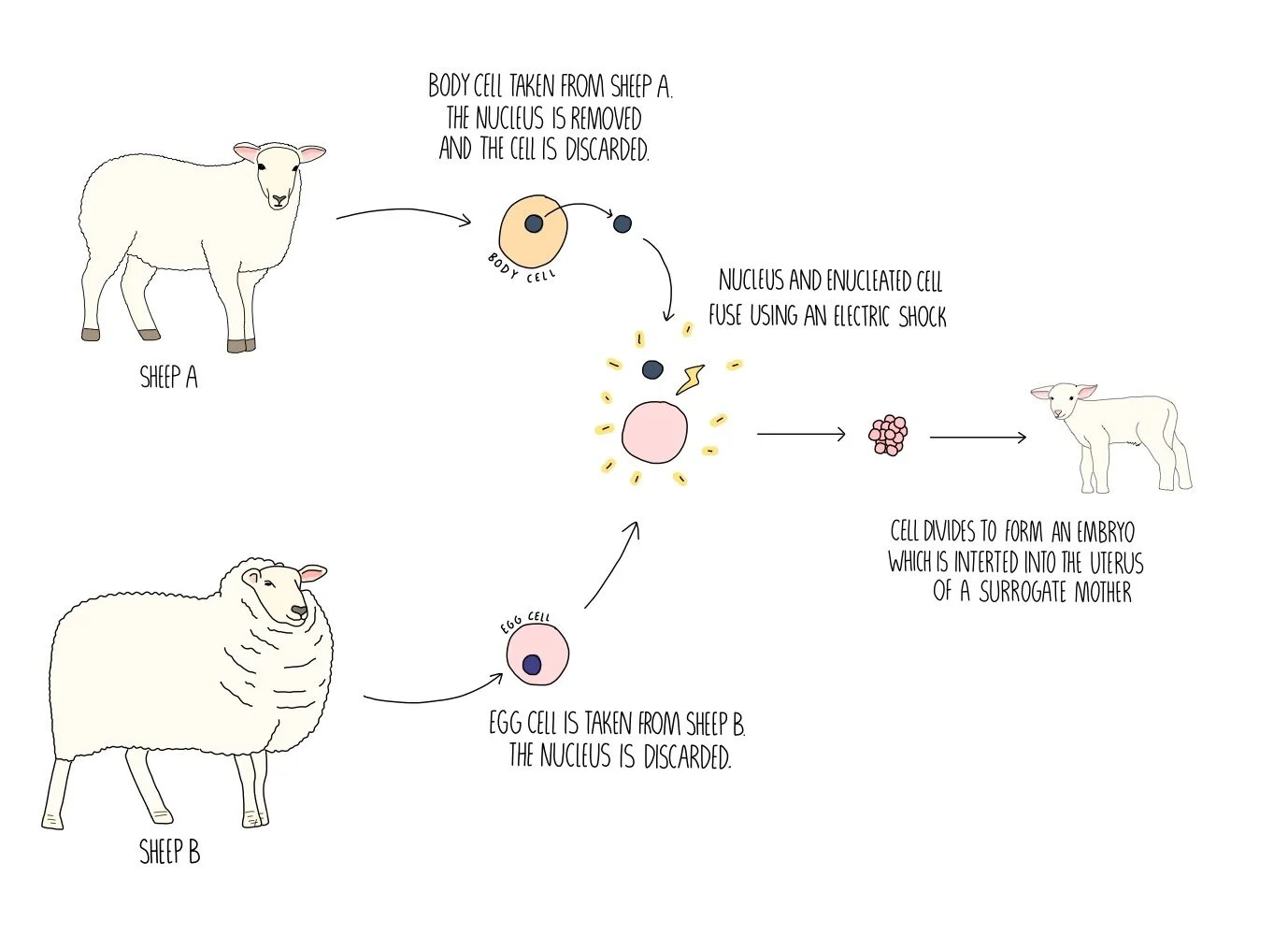Cloning
Cloning is the process of creating an organism which is genetically identical to the parent. Natural clones are common in nature (e.g. asexual reproduction in yeast, human twins). Here we will look at methods of artificial cloning by humans.
Micropropagation (aka tissue culture)
Small pieces of a plant (explants) are grown in vitro. They are grown in a petri dish using sterile agar jelly containing plant hormones and nutrients. This is an important way to preserve a rare plant species. It is also used commercially to produce large numbers of genetically identical plants with desired characteristics and can be done at any time of the year.
Embryo splitting
In this process, an embryo forms naturally by sexual reproduction. The developing embryo can be split into individual cells which will multiply into individual embryos and can be implanted into surrogate mothers, to produce multiple clones. They will be clones of each other, but not genetically identical to either of the parents.
The disadvantages associates with embryo splitting are:
We cannot predict the specific traits of the clones (as the embryos contain a mixture of DNA from both parents).
It has a low success rate.
Adult cell cloning
Dolly the sheep was the first mammal to be cloned (in the UK in 1996). Adult cell cloning has been used since to create genetically identical organisms for research purposes. It involves taking a body cell, such as a skin cell and extracting the nucleus. We then take an egg cell from another organism and discard the nucleus. The nucleus that was removed from the body cell is placed into the empty egg cell using an electric shock. The cell divides by mitosis to form a ball of cells called an embryo, which is implanted into the uterus of a surrogate mother.
Adult cell cloning has a number of disadvantages:
Cloned animals can have developmental problems
Reduces the gene pool - this means there isn’t much genetic differences between organisms, making them equally vulnerable to a certain disease
Religious/ethical considerations - do humans have the right to create life?


